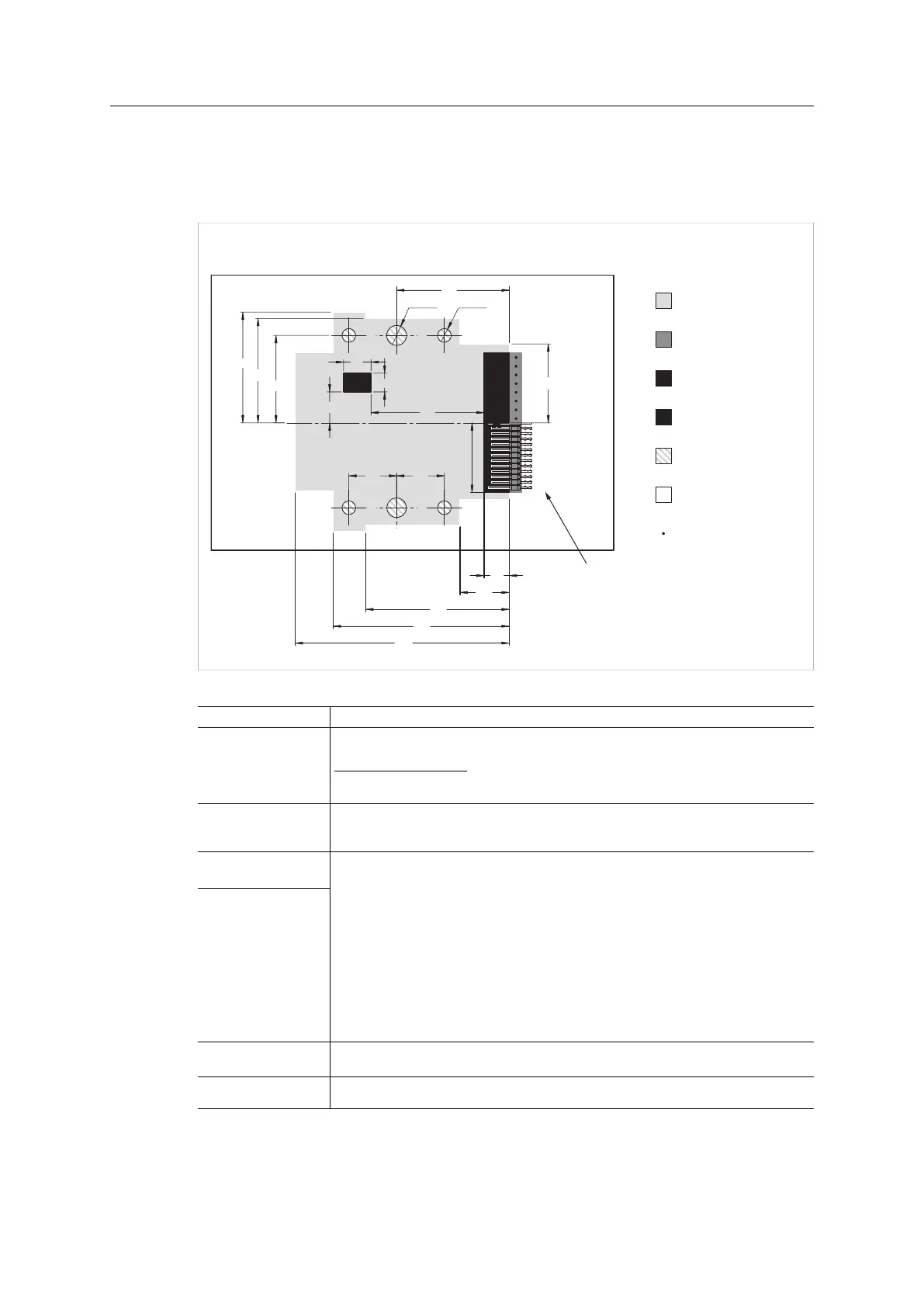Appendix E: Anybus CompactCom 40 without Housing 99 (114)
E.3 Footprint
E.3.1 Without Housing
Footprint for modules without housing.
18.7
11.5
7.0
11.3
25.7
6.5
7.3
4.4
26.6
4 x Ø3.22 x Ø4.7
11.3
33.8
41.7
50.7
20.3
16.5
24.7
26.2
PCB
Via (Connection to GND)
Support Holes
GND Plane (Coated)
GND Plane (Conductive)
Reserved Area
PE Area (Conductive)
AA
B
A
B
Host connector
Fig. 53
Area Description
Reserved Area To ensure isolation and mechanical compatibility, it is strongly advised that this area is
kept completely free from components and signal lines.
Under no circumstances may components, vias, or signal lines, be placed on the PCB-
layer facing the Anybus CompactCom module. Failure to comply with this requirement
may induce EMC/EMI problems, mechanical compatibility issues, or even short circuit.
FE Area
(Conductive)
To achieve proper EMC behaviour and to provide support for different cable shielding
standards, this area must be tin plated (preferably using Hot Air Levelling technology)
and have a stable, low impedance connection to functional earth.
GND Plane
(Coated)
The exact shape of this area depends on the properties of the CompactFlash connector.
It is however important to follow these basic design rules:
• The plane must be continuous and have a stable, low impedance connection to
GND (preferably through at least 16 vias as illustrated in the figure)
• The connection to GND should be placed beneath the CompactFlash connector as
illustrated above (see figure)
• The plane must follow the signal path through the connector
• The conductive part must be tin plated, preferably using Hot Air Levelling
technology
GND Plane
(Conductive)
Support Holes These holes are used by the mounting kit mechanics to secure the module onto the
host application.
PCB The host application PCB should be 1.6mm thick to be able to support the fastening
mechanics.
Anybus
®
CompactCom
™
M40 Hardware Design Guide HMSI-216-126 EN 2.6
